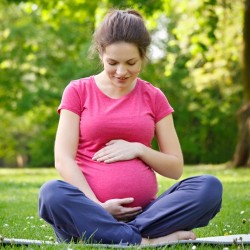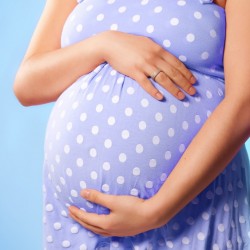Women’s Health
Triclosan and parabens increase odds of preterm and low-birth weight
What your patients wash with and eat is increasingly becoming a concern, especially for pregnant women and women of child bearing age. A new study by Brooklyn’s SUNY Downstate Medical Center shows that premature births and low birth weights may be associated with antibacterial ingredients like triclocarban, triclosan and theRead
Omega-3 fatty acids reduce breast cancer risk in post-menopausal women
The anti-inflammatory effect of omega-3 fatty acids may lower the breast cancer risk of obese, post-menopausal women. A study published in Cancer Prevention Research suggests that omega-3 fatty acids have a specific protective effect for obese, post menopausal women with dense breast tissue. Andrea Manni, professor and division chief of endocrinology,Read
Garlic Has Potential Antibacterial Properties for UTIs
Urinary tract infections are the second most common infection, with as many as 8.1 million doctor visits per year, according to statistics from US Health and Human Services. Physicians are concerned about an ever increasing number of cases resistant to the antibiotics Ciprofloxacin and Trimethoprim-Sulfamethoxazole (TMP-SMZ). A new study showsRead
Cessation of Breastmilk Alters Infant Microbiome
Aspirin Reduces Cervical Cancer Risk by 47%
Frequent intake of aspirin may cut cervical cancer risk by half, according to a study led by researchers at Roswell Park Cancer Institute (RPCI). Frequent intake was defined by five or more years of use of 7 or more tablets per week. According to the American Cancer Society, 12,900 newRead
Adult Food Allergies Linked to Prenatal BPA Exposure
If it seems like more of your patients are allergic to, or intolerant of, more and different kinds of foods than ever before, there might be a reason why. A new research published in November 2014 issue of The FASEB Journal, scientists show, for the first time, that there is a link between perinatal exposure to Bisphenol A (BPA) at low doses and the risk to develop food intolerance in later life. By Sadrine Menard et al, The FASEB Journal, November 2014.
Group-dietary Intervention and Gestational Weight Gain Among Obese Women
A new study finds that women who are obese can limit their weight gain during pregnancy using conventional weight-loss techniques, including attending weekly group support meetings, seeking advice about nutrition and diet, and keeping food and exercise journals. Results of the Healthy Moms study, published in Obesity, also show thatRead
Breastfeeding & Intestinal Microbiota in Infants
Case Study: Escharotic Treatment for ECC-positive Cervical Epithelial Neoplasia in Childbearing Years
Clues Connect Estrogen and Autoimmune Disease
There is a phenomenon that scientists have yet to solve, regardless of whether a woman lives in the United States, where medical care is relatively good, or third world nations, where medical care is often scarce: women are less likely to die from infectious diseases than men. The lower death rate has been attributed to a beneficial, yet unexplained effect estrogen has on the immune system. Females of child-bearing age are more resistant to infectious disease and have an increased risk of systemic lupus erythematosus (SLE). This study hypothesized that estrogen-induced gene expression could establish an immunoactivated state which would render enhanced defense against infection, but may be deleterious in autoimmune development.By Nicholas A. Young, Lai-Chu Wu, et al, Estrogen modulation of endosome-associated toll-like receptor 8: An IFNα-independent mechanism of sex-bias in systemic lupus erythematosus. Clinical Immunology, March 2014













